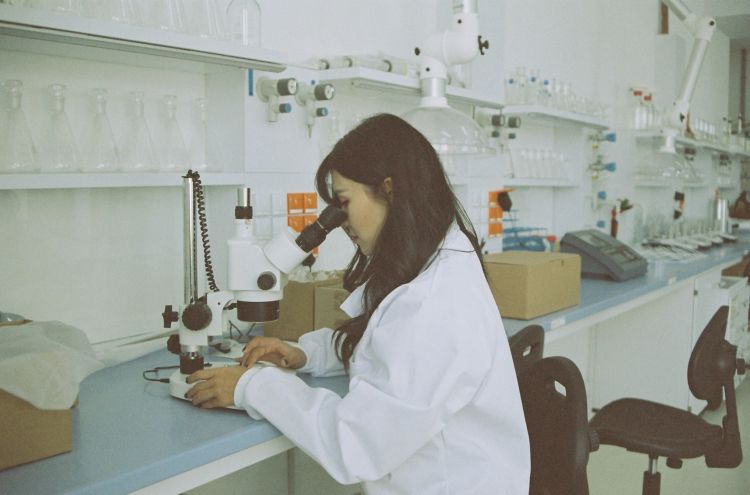SIRPant Immunotherapeutics Announces FDA Clearance of IND Application for SIRPant-MTM for the Treatment of Solid Tumors
HUMMELSTOWN, Pa., Dec. 12, 2023 (GLOBE NEWSWIRE) — SIRPant Immunotherapeutics, Inc., a clinical-stage immuno-oncology company focusing on developing next-generation macrophage-based immunotherapies for the treatment of hematological malignancies and solid tumors, today announced that the U.S. Food and Drug Administration (FDA) has cleared an Investigational New Drug (IND) application for the Company’s lead product candidate, SIRPant-M , an autologous SIRPα low
activated macrophage therapy, to treat solid tumors. Eligible tumor types include, among others, head and neck cancer, non-melanoma skin cancers, bladder and kidney cancers, low-grade prostate cancer, triple-negative breast cancer and certain sarcomas. Earlier this year, the company cleared its first IND in Non-Hodgkin Lymphoma (NHL).
, an autologous SIRPα low
activated macrophage therapy, to treat solid tumors. Eligible tumor types include, among others, head and neck cancer, non-melanoma skin cancers, bladder and kidney cancers, low-grade prostate cancer, triple-negative breast cancer and certain sarcomas. Earlier this year, the company cleared its first IND in Non-Hodgkin Lymphoma (NHL).
“This second IND clearance in 2023 is a testimony not only to the SIRPant team’s ability to deliver on-time development milestones, but also to the broad potential scope of therapeutic opportunities for SIRPant-M TM in multiple tumor types,” said Robert Towarnicki, President & CEO of SIRPant. “We look forward to progressing SIRPant-M TM through clinical development and dosing the first patients in both the NHL and solid tumor trial in 2024.”
“A unique attribute of this IND is that it allows SIRPant-M to be evaluated, in parallel, in both relapsed/refractory and pre-operative settings earlier in the disease trajectory,” said Jelle Kijlstra, MD, MBA, Chief Medical Officer of SIRPant. “Exploring SIRPant-M TM
in multiple therapeutic settings, in parallel rather than in sequence, allows for more expedient development as it enables us to establish more rapidly where this therapy has the highest potential in changing the lives of cancer patients.”
to be evaluated, in parallel, in both relapsed/refractory and pre-operative settings earlier in the disease trajectory,” said Jelle Kijlstra, MD, MBA, Chief Medical Officer of SIRPant. “Exploring SIRPant-M TM
in multiple therapeutic settings, in parallel rather than in sequence, allows for more expedient development as it enables us to establish more rapidly where this therapy has the highest potential in changing the lives of cancer patients.”
The Phase 1, multi-center clinical study is designed to evaluate the safety, determine the recommended dose for Phase 2, and assess preliminary anti-tumor activity in subjects with solid tumors that have progressed following available standard treatment, or for whom no standard treatment exists. Under the newly cleared IND, the Company plans to initiate clinical investigation of SIRPant-M TM
as a monotherapy and in combination with other immuno-stimulatory modalities such as radiotherapy and immune checkpoint inhibitors for the treatment of select solid tumor indications.
About SIRPant-M
TM
SIRPant-M TM
is an autologous cancer-agnostic macrophage cell therapy manufactured using PhagoAct , an advanced non-genetic method to activate and educate patients’ own macrophages for the recognition and elimination of cancerous cells. As a monotherapy or in combination with other immuno-stimulatory modalities such as radiotherapy and immune checkpoint inhibitors, SIRPant-M
, an advanced non-genetic method to activate and educate patients’ own macrophages for the recognition and elimination of cancerous cells. As a monotherapy or in combination with other immuno-stimulatory modalities such as radiotherapy and immune checkpoint inhibitors, SIRPant-M acts by directly attacking cancerous cells, stimulating cancer neoantigen-specific cytotoxic T cells and antibodies, reducing immunosuppressive elements, and perpetuating a pro-inflammatory tumor microenvironment that favors cancer elimination. By mobilizing other immune cells and promoting a multi-prong attack on cancer, SIRPant-M
acts by directly attacking cancerous cells, stimulating cancer neoantigen-specific cytotoxic T cells and antibodies, reducing immunosuppressive elements, and perpetuating a pro-inflammatory tumor microenvironment that favors cancer elimination. By mobilizing other immune cells and promoting a multi-prong attack on cancer, SIRPant-M targets established tumors and achieves persistent and durable immune memory that resists cancer relapse. SIRPant-M
targets established tumors and achieves persistent and durable immune memory that resists cancer relapse. SIRPant-M is currently recruiting patients for a Phase 1 trial for the treatment of relapsed or refractory non-Hodgkin’s lymphoma (R/R NHL, SI-101).
is currently recruiting patients for a Phase 1 trial for the treatment of relapsed or refractory non-Hodgkin’s lymphoma (R/R NHL, SI-101).
About SIRPant Immunotherapeutics, Inc.
SIRPant Immunotherapeutics Inc. is a clinical-stage immuno-oncology company specializing in the development of next-generation macrophage-based immunotherapies for the treatment of hematological malignancies and solid tumors. The cell therapy technology SIRPant employs is based on the reduction of SIRPα expression combined with activation of the patient’s own macrophages. This population of SIRPαlow activated macrophages are designed to attack the tumor following injection by activating the patient’s immune system to produce broad spectrum anti-tumor activity that utilizes patient T-cells and antibodies targeting cancer neoantigens. Because SIRPant does not genetically engineer its cell therapies, the company believes its product candidates will be easier and less expensive to manufacture, with reduced toxicities, compared to current engineered cell therapies in the clinic, and may provide patients with meaningful clinical benefit. As a result, SIRPant-M TM
has a compelling product profile when compared to current gene-modified cell therapies. For more information, please visit www.sirpantimmunotx.com.





